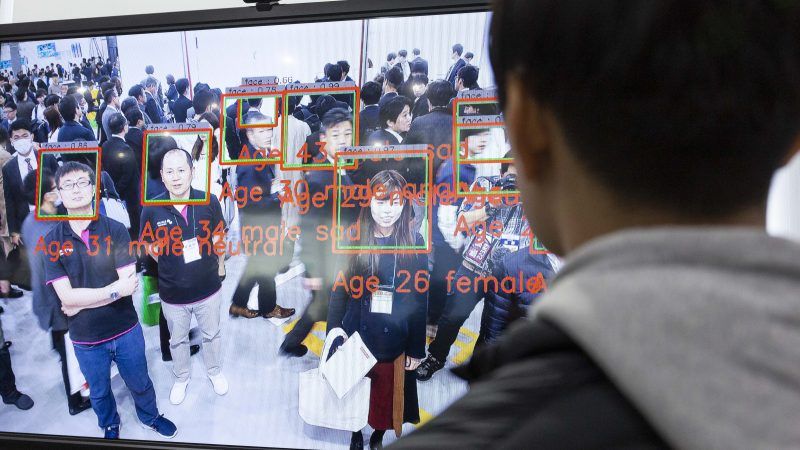San Francisco Bans Police Use of Facial Recognition
Preventing a slow march toward automated authoritarianism?

The San Francisco Board of Supervisors voted 8 to 1 to ban local law enforcement from using facial recognition technology. Not everyone is pleased.
"It is ridiculous to deny the value of this technology in securing airports and border installations," said Jonathan Turley, a constitutional law expert at George Washington University to The New York Times. "It is hard to deny that there is a public safety value to this technology."
Well, yes. And the public safety value of putting electronic ankle bracelets on everybody and keeping their location information in a giant database so that police can later find out if an individual was near the site where a crime happened is similarly undeniable. But that doesn't seem like such a good idea.
The San Francisco ban was passed, as the Times reports, in response to civil libertarian concerns about the technology's potential abuse by the government amid fears that it may shove the United States in the direction of an overly oppressive surveillance state.
Police, on the other hand, argue that facial recognition would now just be a handy investigative tool simply used to identify suspects committing crimes while caught on closed-circuit city and private security cameras. Sounds reasonable, yes?
Consider the recent Florida case in which officers used facial recognition technology to identify someone as an allegedly low-level drug dealer by comparing cell phone camera snaps with a mugshot database. The alleged dealer claims that the police got the wrong guy. As part of his defense, the accused man's attorney challenged the accuracy of the technology and asked to see what other booking photos were returned as probable matches by the facial recognition algorithm. The police refused to turn them over. "Their refusal violated the Constitution, which requires prosecutors to disclose information favorable to a defendant," asserts the American Civil Liberties Union (ACLU). Sadly, such police and prosecutorial misfeasance is not all that rare.
As bad as this misconduct is, that is not the main concern with widespread government deployment of facial recognition technology. Civil libertarians worry that the technology could morph into pervasive automated authoritarianism in which individuals can be tracked everywhere, in real time, similar to the version being developed by the Chinese government. The Chinese government reportedly aims, as part of its Skynet surveillance system, to add an additional 400 million video cameras to its existing 170 million over the next three years. The cameras employ real time facial recognition technology.
As Matt Cagle, a lawyer with the ACLU of Northern California tells the Times, the technology "provides government with unprecedented power to track people going about their daily lives. That's incompatible with a healthy democracy."


Show Comments (19)